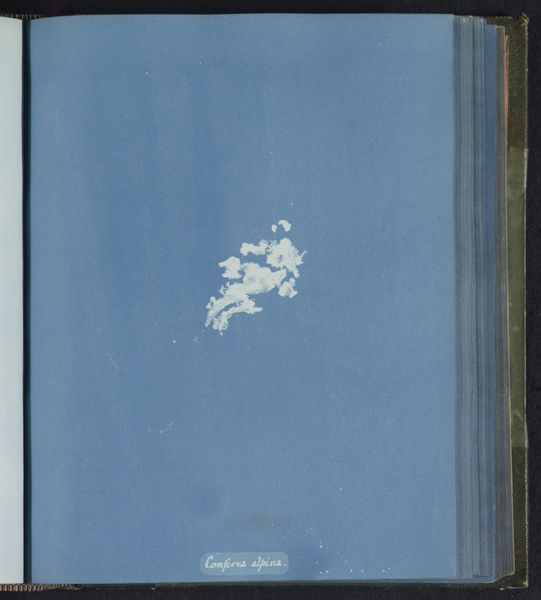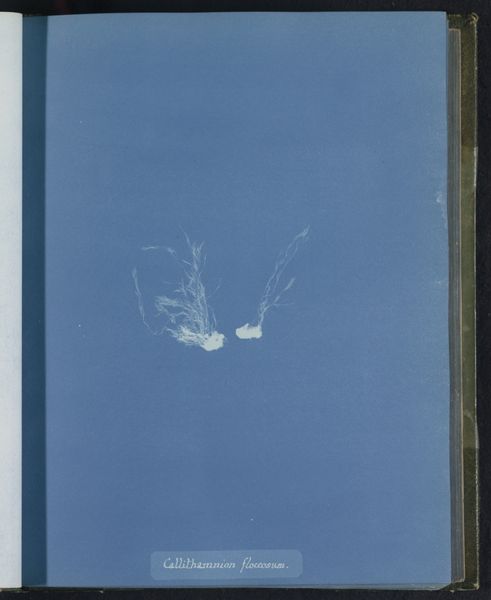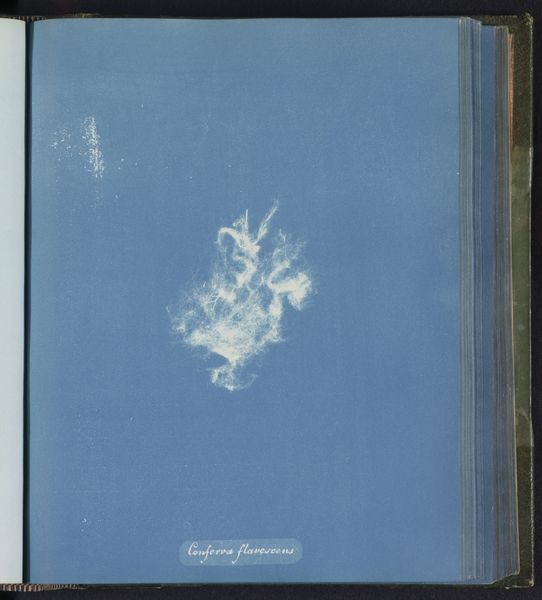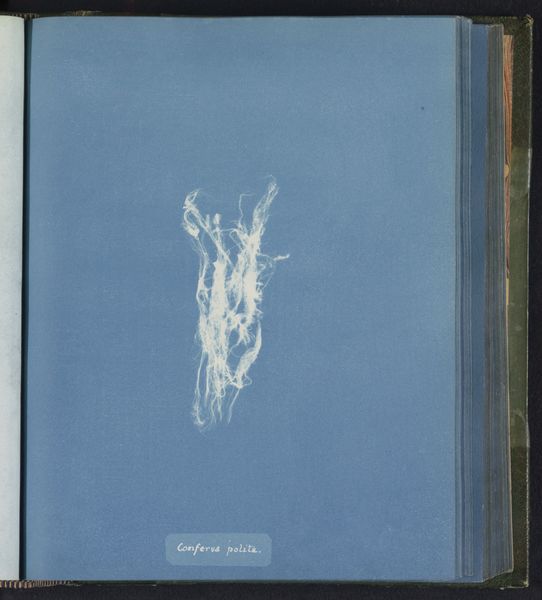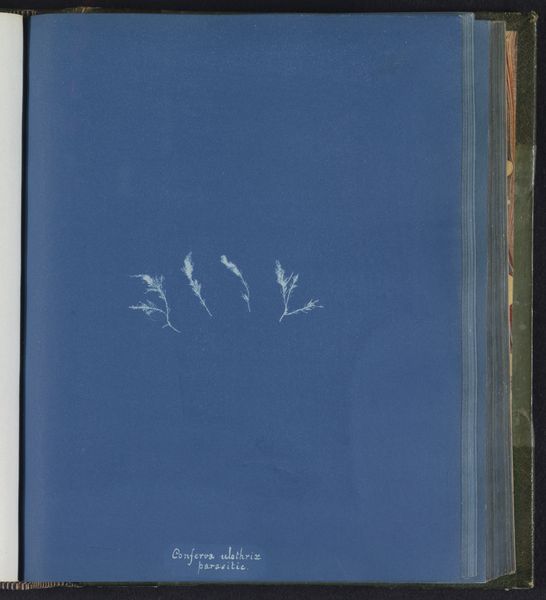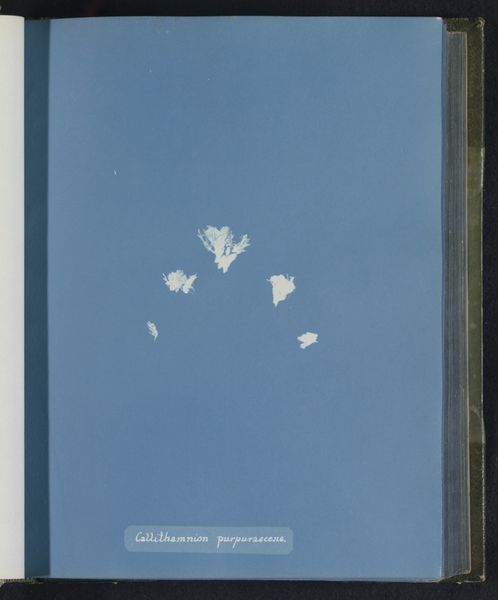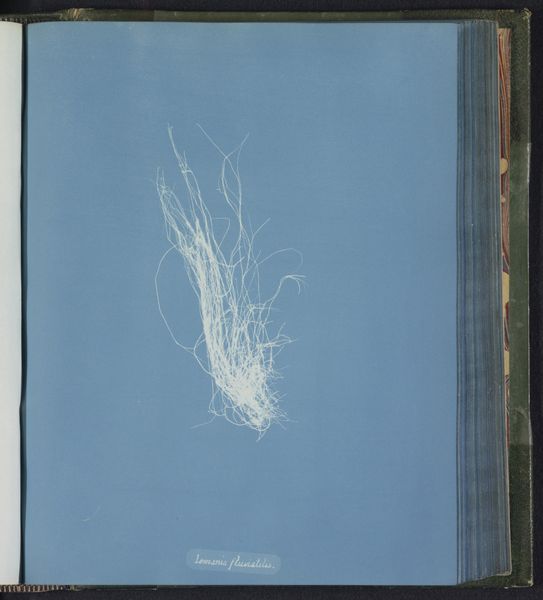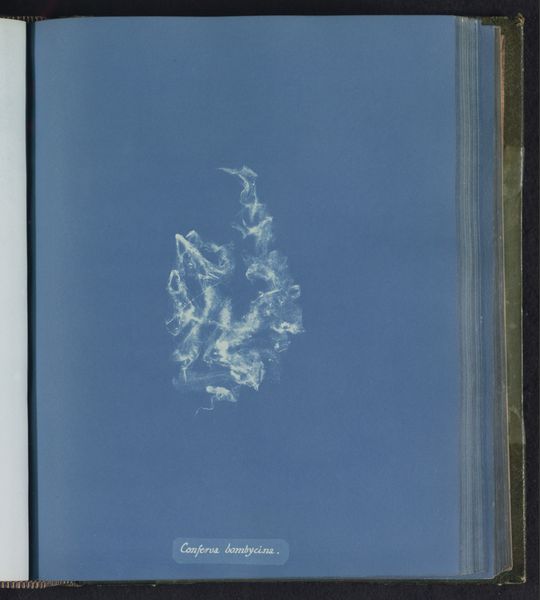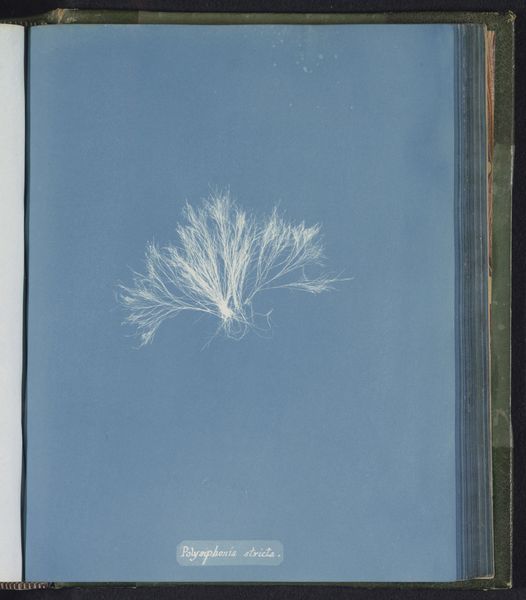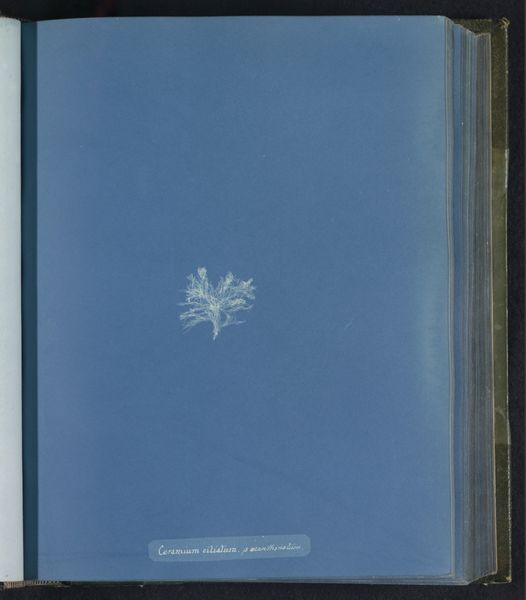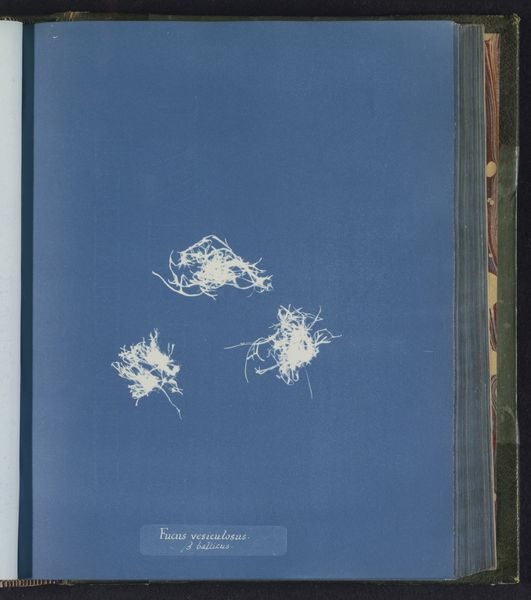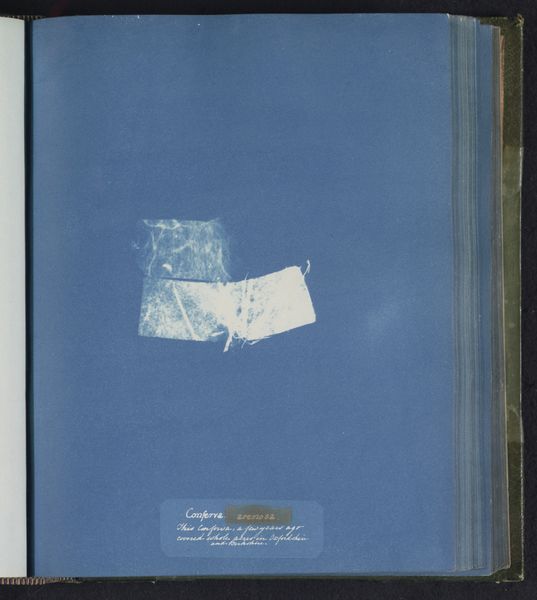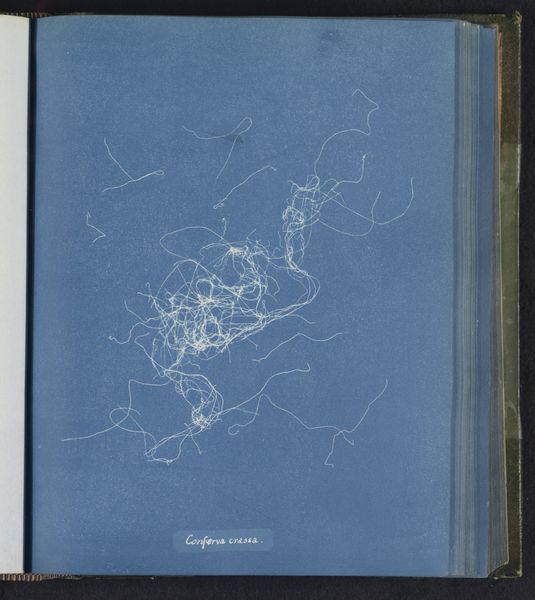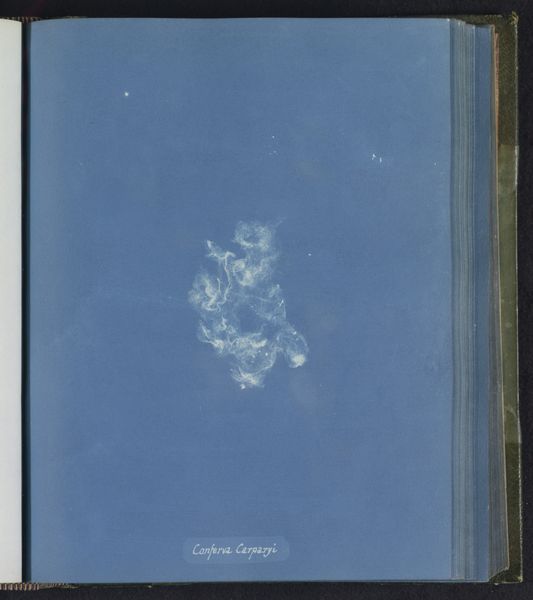
print, cyanotype, photography
#
16_19th-century
# print
#
figuration
#
cyanotype
#
photography
#
coloured pencil
#
naturalism
#
monochrome
Dimensions: height 250 mm, width 200 mm
Copyright: Rijks Museum: Open Domain
Editor: Here we have Anna Atkins' "Conferva implexa", a cyanotype from the mid-19th century. The stark white algae against that vivid blue is quite striking! What do you make of it? Curator: The cyanotype, with its Prussian blue hue, speaks to me of hidden worlds brought to light. Notice how Atkins chose this particular algae. "Conferva implexa," the entangled algae, might symbolize interconnectedness, not just within the natural world, but within scientific knowledge itself. What feeling does that entanglement evoke in you? Editor: That makes sense! It feels almost like a visual representation of chaos within order. The crisp detail highlights the delicate beauty, though. Curator: Exactly! The detail is critical. Atkins's scientific training meant that accurately rendering these forms was key, yet there's a symbolic resonance, a reflection on how we categorize the natural world. Do you think there’s significance in her choice of photography, a relatively new technology at the time? Editor: Absolutely. Photography promised objectivity, almost like capturing truth itself. Curator: Precisely. But consider: the cyanotype process itself transforms the object. It’s not a simple copy, but an interpretation. Atkins becomes an alchemist, turning seaweed into art, science into cultural memory. It reveals to us a moment in time when art, science, and photography intertwined. Editor: It’s incredible how much history and interpretation can be packed into a single image of seaweed! Curator: Indeed. It invites us to question the boundaries of what we know, how we see, and what it all signifies, even today.
Comments
No comments
Be the first to comment and join the conversation on the ultimate creative platform.
